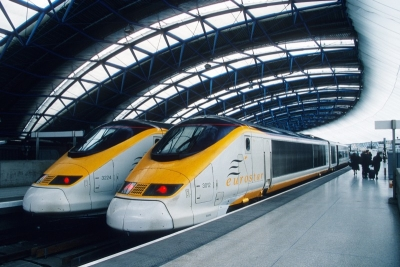
The Labor Government's announcement, to preserve the 1,748 kilometre corridor along which the track will be laid and establish a new authority to oversee the delivery of the project, has received widespread praise.
The government, if re-elected, promised to adopt all the recommendations in the final report from the High-Speed Rail Advisory Group. The advisory group's membership includes former Deputy Prime Minister Tim Fischer, Business Council of Australia Chief Executive Jennifer Westacott and Australasian Railway Association CEO Bryan Nye.
The proposed east coast network, which would ultimately service two-thirds of the Australian population, would be built in stages. The first section would link Sydney to Melbourne via the Southern Highlands, Canberra, Wagga Wagga, Albury Wodonga and Shepparton and be completed by 2035.
The next stage would connect Sydney to Brisbane via the CentralCoast and Newcastle.
The initial allocation of $52 million would establish the new High-Speed Rail Authority and allow it to:
Finalise the track alignment and station locations in consultation with the governments of Victoria, New South Wales, Queensland and the ACT. Work with Infrastructure Australia to develop a detailed business case. Conduct market testing to refine capital cost estimates, construction timetables and to identify opportunities for private sector involvement.
Copies of the High-Speed Rail Advisory Group's final report can be downloaded
Now or never: ARA
The Australasian Railway Association (ARA) has strongly supported and welcomed the release of the High-Speed Rail Advisory Group Report 'On Track: Implementing High-Speed Rail in Australia'.
The report declares that there is clear evidence to support the project and the "first and most important conclusion is that high speed rail must be an integral part of Australia's future."
ARA CEO Bryan Nye said the report was the final piece of evidence in a robustly prosecuted case, proving that Australia needs a high-speed rail network, and fast – not someday, today.
"The jury has made its decision," Mr Nye said. "Australia needs a high-speed rail network and we need to act now.
"The advisory committee concluded in its report that high-speed rail must be an integral part of Australia's future and that they found no insurmountable issues that preclude Australia proceeding with the project as a priority," he said.
The report also addresses concerns over the cost and timing, saying that high-speed rail should be made open to competitive global tender from the private sector, the project should be packaged on a 'line-by-line' basis, and that the timeframes initially proposed are highly conservative.
"The ARA has, for a long time now, been a strong advocate for high-speed rail," said Mr Nye. "This report outlines the immediate reasonable steps that can be taken now to ensure this visionary project becomes a reality, not another feasibility study. Our decision makers in government have a serious responsibility to listen and then act on these recommendations.
"As our cities continue to expand, so too does the pressure on our existing transport systems. Sixty per cent of Australia's total population lives in a capital city and one third of them are in either Sydney or Melbourne," Mr Nye continued.
"As a result, we have one of the busiest air corridors in the world, with Melbourne to Sydney ranked as third busiest air corridor globally in March this year.
"We have an increasing travel demand along the east coast estimated to reach 355 million trips by 2065, and an increasing cost to our economy with congestion set to cost Australia over $20 billion by the end of the decade.
"Our cities cannot take this pressure, our airways and our roads cannot take this pressure, our economic productivity cannot take this pressure and most importantly nor can the Australian people," said Mr Nye.
"A high-speed rail network connecting our overpopulated cities will ease congestion and travel times and encourage growth and economic development in our regional centres, allowing people to live in the country and work in the city.
"I look forward to working with a newly elected federal government on making these recommendations a reality and building a better future for Australia," Mr Nye concluded.





